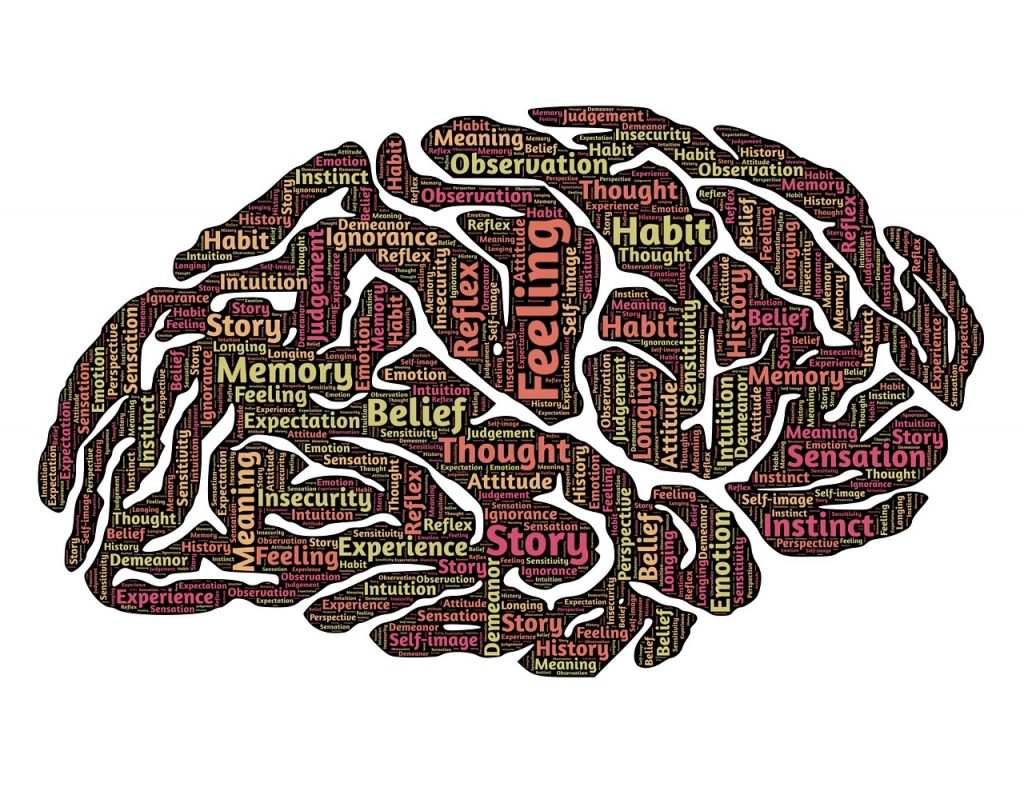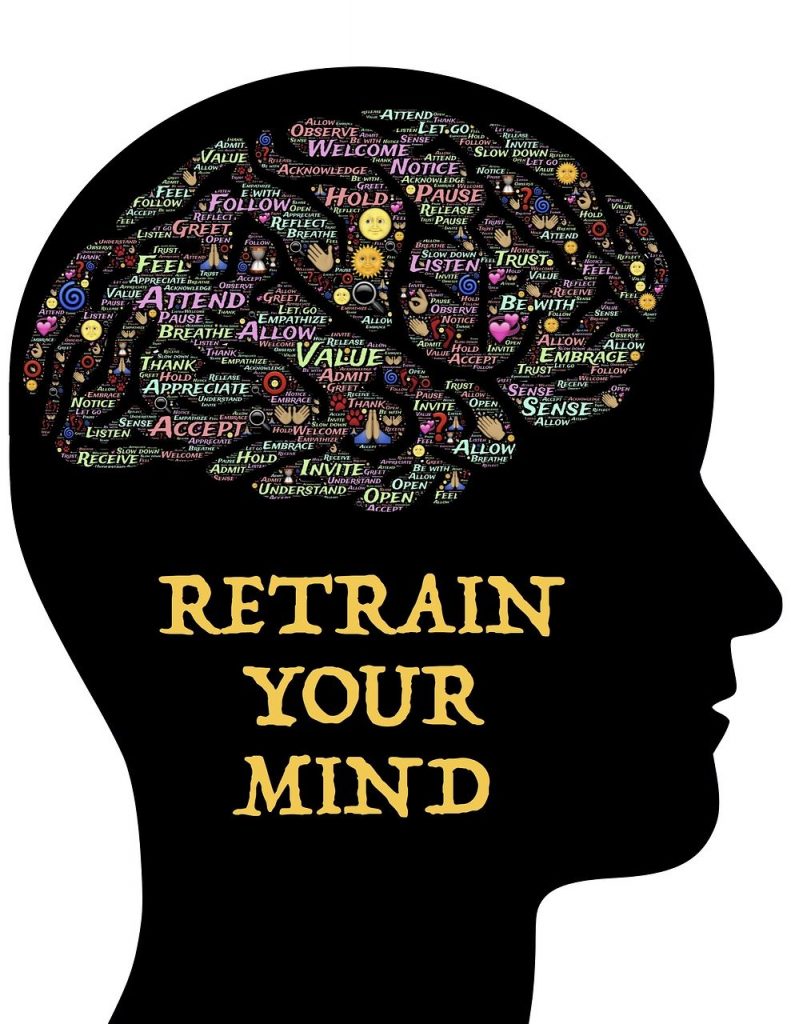Have you ever wondered why some people seem to effortlessly overcome challenges and achieve success, while others struggle and remain stuck? It all comes down to their mindset. In this article, we will explore the concept of fixed versus growth mindsets and how recognizing and shifting our perspectives can have a profound impact on our lives. By understanding these two mindsets and taking actionable steps to cultivate a growth mindset, you can unlock your full potential, improve your relationships, and create a life that is filled with happiness and fulfillment. So let’s dive in and discover the power of mindset transformation!

This image is property of pixabay.com.
Understanding the Difference Between Fixed and Growth Mindset
In order to embark on a journey of personal growth and self-improvement, it is essential to first understand the fundamental difference between a fixed mindset and a growth mindset. Your mindset, or the way you perceive and approach challenges, setbacks, and opportunities, plays a crucial role in shaping your attitudes and behaviors.
What is a Fixed Mindset?
A fixed mindset is characterized by the belief that our qualities, abilities, and intelligence are fixed traits that cannot be changed or improved upon. Individuals with a fixed mindset tend to perceive their skills and talents as finite, leading them to avoid challenges and stick to what they already know. They may view failures as evidence of their inherent limitations, which can lead to a fear of taking risks and a tendency to give up easily.
What is a Growth Mindset?
In contrast, a growth mindset is centered around the belief that our abilities can be developed through dedication, effort, and continuous learning. People with a growth mindset see challenges as opportunities for growth, understanding that setbacks and failures are a natural part of the learning process. They embrace challenges, persist through obstacles, and actively seek out feedback and constructive criticism to improve their skills and knowledge.
Key Differences Between Fixed and Growth Mindset
The main distinction between a fixed mindset and a growth mindset lies in how individuals perceive their own potential and approach challenges. While those with a fixed mindset may see their abilities as fixed and limited, individuals who embrace a growth mindset believe in the power of effort and see setbacks as opportunities for learning and growth.
Additionally, people with a fixed mindset often avoid challenges to protect their self-image and may regard effort as fruitless. On the other hand, those with a growth mindset see effort as a necessary part of the journey towards mastery and are more resilient in the face of difficulties.
Understanding these key differences is the first step towards recognizing and shifting your own mindset to one that is growth-oriented.
Recognizing Your Current Mindset
Now that we have explored the concept of mindset and its two main categories, let’s dive deeper into self-awareness and how it plays a pivotal role in recognizing our own mindset.
The Importance of Self-Awareness
Self-awareness is the foundation of personal growth and transformation. It involves introspection and a deep understanding of one’s thoughts, emotions, and behaviors. By cultivating self-awareness, you can begin to examine your own mindset and the beliefs that shape your attitudes and actions.
Common Signs of a Fixed Mindset
To identify whether you currently have a fixed mindset, it is important to be aware of some common signs that may indicate this mindset:
- Avoidance of challenges: If you tend to shy away from new or difficult tasks, preferring to stick with what you know, it could be a sign of a fixed mindset.
- Giving up easily: When faced with obstacles or setbacks, individuals with a fixed mindset may quickly lose motivation and give up rather than persisting through difficulties.
- Ignoring feedback: People with a fixed mindset may have a defensive reaction to feedback or constructive criticism, as they see it as a reflection of their limitations rather than an opportunity for growth.
Recognizing Growth Mindset Traits in Yourself
On the other hand, if you display the following traits, it is likely that you have a growth mindset:
- Embracing challenges: You actively seek out new challenges and view them as opportunities for personal growth and development.
- Persisting through obstacles: When faced with difficulties, you demonstrate resilience and perseverance, seeing setbacks as temporary and surmountable.
- Valuing feedback: Rather than being defensive or dismissive of feedback, you appreciate constructive criticism as a chance to learn and improve.
By observing these signs and identifying your own mindset patterns, you can begin to understand where you currently stand and take steps towards cultivating a growth mindset.

This image is property of pixabay.com.
Exploring the Benefits of Having a Growth Mindset
Adopting a growth mindset comes with a wide range of benefits that can positively impact various aspects of your life. Let’s take a closer look at some of the key advantages:
Embracing Challenges and Learning Opportunities
One of the primary benefits of having a growth mindset is the ability to embrace challenges and view them as opportunities for growth. With a growth mindset, you are more likely to step out of your comfort zone, take on new challenges, and explore unfamiliar territories. This mindset allows you to continually expand your skills and knowledge, ultimately leading to personal and professional growth.
Increased Resilience and Persistence
A growth mindset fosters resilience and persistence in the face of obstacles and setbacks. Rather than viewing failures as a reflection of their abilities, individuals with a growth mindset see them as stepping stones on the path to mastery. They understand that setbacks are an inevitable part of the learning process and use them as motivation to keep pushing forward. This resilience enables them to bounce back from setbacks, adapt to change, and ultimately achieve their goals.
Openness to Feedback and Constructive Criticism
Another valuable benefit of a growth mindset is the willingness to seek out feedback and embrace constructive criticism. Rather than becoming defensive or discouraged by feedback, individuals with a growth mindset see it as an opportunity to learn and improve. This openness to feedback allows for continuous growth and development, as they actively seek out ways to enhance their skills and knowledge.
By adopting a growth mindset, you can unlock your full potential and experience the numerous benefits that come with it. But what if you currently find yourself stuck in a fixed mindset? Let’s explore how you can identify and overcome fixed mindset perspectives.
Identifying and Overcoming Fixed Mindset Perspectives
Recognizing and addressing fixed mindset perspectives is essential for personal growth and mindset transformation. Here are some common fixed mindset perspectives and strategies to overcome them:
Limiting Beliefs and Self-Sabotage
A fixed mindset often leads to the development of limiting beliefs, such as the belief that you are not capable of achieving certain goals or that talents are innate rather than developed. To overcome these limiting beliefs, it is important to challenge and reframe them. Start by questioning the evidence behind these beliefs and seek out counterexamples that contradict them. Reframing your beliefs can open up new possibilities and empower you to take action towards your goals.
Self-sabotage is another common behavior associated with a fixed mindset. When faced with challenges or opportunities for growth, individuals with a fixed mindset may engage in self-sabotaging behaviors, such as procrastination or giving up prematurely. Recognizing these patterns and actively working towards replacing them with growth-oriented behaviors is key to overcoming a fixed mindset.
Fear of Failure and Rejection
Fear of failure and rejection can be paralyzing and prevent individuals from taking necessary risks or trying new things. People with a fixed mindset often associate failure with their personal worth or intelligence, leading to a fear of failure and a reluctance to step outside their comfort zone.
To overcome this fear, it is important to reframe failure as a natural part of the learning process and an opportunity for growth. Embrace a growth mindset by viewing failures as stepping stones towards success, rather than personal shortcomings. By shifting your perspective on failure, you can develop resilience, learn from your mistakes, and continue striving towards your goals.
Negativity and Fixed Thinking Patterns
Fixed thinking patterns, characterized by negative self-talk and a focus on limitations, can hinder personal growth and progress. Recognizing these patterns and consciously challenging negative thoughts is essential for cultivating a growth mindset.
Practice reframing negative thoughts into positive and growth-oriented statements. For example, instead of thinking, “I’m not good at this,” reframe it as, “I may not be good at it yet, but with practice and dedication, I can improve.” By actively replacing negative thoughts with more empowering ones, you can reshape your mindset and encourage growth and development.

This image is property of pixabay.com.
Shifting Perspective: Strategies for Cultivating a Growth Mindset
Cultivating a growth mindset is a continuous journey that requires intentional effort and practice. Here are some strategies to help you shift your perspective and embrace a growth-oriented mindset:
Embracing a Love for Learning
Develop a genuine love for learning and view every experience as an opportunity to acquire new knowledge and skills. Adopt a curiosity-driven approach and seek out learning opportunities in every aspect of your life. Embrace challenges and setbacks as chances for growth and place a higher value on the process of learning rather than solely focusing on the end result.
Developing a Can-Do Attitude
Shift your attitude towards challenges from a fixed “I can’t” to a growth-oriented “I can learn and improve.” Challenge yourself to take on tasks outside of your comfort zone and approach them with a positive and determined mindset. Celebrate progress and small wins along the way, acknowledging that effort and perseverance are key components of growth.
Setting Realistic Goals and Taking Action
Set specific, realistic, and measurable goals that align with your passions and values. Break these goals down into smaller, manageable steps and take consistent action towards them. Embrace the growth mindset by understanding that setbacks and failures are valuable opportunities for learning and that progress is not always linear.
Nurturing a Growth Mindset in Others
Recognizing the importance of nurturing a growth mindset in others is crucial, whether it’s in the workplace, at home, or within a community. Here are some strategies to promote a growth mindset in others:
Recognizing and Encouraging Effort
Acknowledge and appreciate the effort that individuals put into their work or personal growth. Highlight specific instances where someone demonstrated resilience, embraced challenges, or sought out feedback. By recognizing and praising effort rather than solely focusing on achievements or outcomes, you foster a growth-oriented environment that values learning and improvement.
Promoting a Positive Learning Environment
Create an environment that encourages experimentation, collaboration, and a mindset of continuous learning. Foster a culture where mistakes are seen as opportunities for growth, and ideas are encouraged and valued. Provide resources and opportunities for personal and professional development, such as workshops, training programs, or mentorship initiatives.
Providing Constructive Feedback
Offer constructive feedback and guidance that promotes growth and improvement. Focus on specific areas for improvement and provide actionable steps that individuals can take to develop their skills. Encourage self-reflection and self-awareness by asking thought-provoking questions and helping individuals recognize and reshape their own mindset patterns.
Mindset Transformation: Overcoming Obstacles and Building Resilience
Embarking on a mindset transformation journey requires patience, perseverance, and a commitment to personal growth. Here are some key strategies for overcoming obstacles and building resilience along the way:
Understanding the Power of the Mind
Recognize and harness the power of your thoughts and beliefs. Understand that your mindset shapes your reality and has the ability to influence your actions and behaviors. Adopt a growth mindset by intentionally choosing thoughts and beliefs that align with your goals and aspirations.
Overcoming Self-Doubt and Limiting Beliefs
Challenge self-doubt and limiting beliefs that may be holding you back. Cultivate self-compassion and practice reframing negative thoughts and self-talk into more empowering statements. Surround yourself with positive influences and seek support from mentors or like-minded individuals who can provide encouragement and guidance.
Building Resilience and Bouncing Back
Resilience is a key attribute that can help you bounce back from setbacks and adapt to change. Cultivate resilience by reframing failures as learning opportunities, focusing on solutions rather than dwelling on problems, and developing a strong support network. Embrace challenges, persevere through difficulties, and remain committed to your growth journey.
In conclusion, understanding the difference between a fixed mindset and a growth mindset is the first step towards personal growth and mindset transformation. By recognizing your own mindset and actively working towards shifting towards a growth-oriented perspective, you can unlock your full potential and lead a more fulfilling and successful life. Embrace challenges, persist through setbacks, and actively seek out feedback and learning opportunities. Nurture a growth mindset in others by recognizing and encouraging effort, promoting a positive learning environment, and providing constructive feedback. Overcome obstacles and build resilience by understanding the power of your mind, challenging self-doubt and limiting beliefs, and cultivating a mindset of growth and learning. Start your journey towards mindset transformation today and unlock your true potential.


